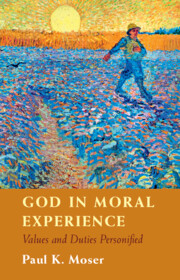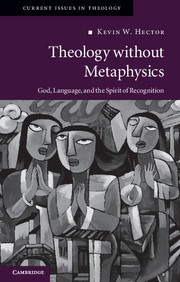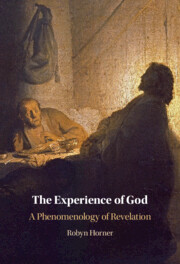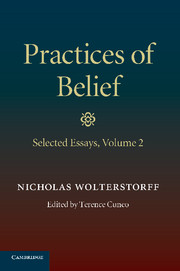
Divine Discourse
Philosophical Reflections on the Claim that God Speaks
$49.99 USD
- Author: Nicholas Wolterstorff, Yale University, Connecticut
- Date Published: May 2012
- availability: This ISBN is for an eBook version which is distributed on our behalf by a third party.
- format: Adobe eBook Reader
- isbn: 9781139238625
Find out more about Cambridge eBooks
$
49.99 USD
Adobe eBook Reader
Other available formats:
Paperback
Looking for an inspection copy?
This title is not currently available on inspection
-
Prominent in the canonical texts and traditions of Judaism, Christianity, and Islam is the claim that God speaks. Nicholas Wolterstorff argues that contemporary speech-action theory, when appropriately expanded, offers us a fascinating way of interpreting this claim and showing its intelligibility. He develops an innovative theory of double-hermeneutics - along the way opposing the current near-consensus led by Ricoeur and Derrida that there is something wrong-headed about interpreting a text to find out what its author said. Wolterstorff argues that at least some of us are entitled to believe that God has spoken. Philosophers have never before, in any sustained fashion, reflected on these matters, mainly because they have mistakenly treated speech as revelation.
Read more- Important contribution to current philosophical and theological discussion about the nature of God
- Fresh approach to major problem in Christian theology
- Based on prestigious Wilde Lectures (1993) at University of Oxford
Reviews & endorsements
'Long regarded in the United States as a leading philosopher of religion, Nicholas Wolterstorff now has a growing reputation world-wide. He is cross-disciplinary in his approach, drawing freely from literary and critical theory, and is sensitive to the need to place religious claims in a larger context. Divine discourse addresses the traditional theme of divine revelation in a disarmingly direct way, by reflecting philosophically on the meaning of recurring biblical phrases, such as 'Thus sayeth the Lord' and of liturgical utterances, such as 'This is the word of the Lord'. This book will be a major contribution to a philosophical (and religious) understanding of what it means for God to speak.' John Clayton, Lancaster University
See more reviews'Derived from his Wilde Lectures delivered at Oxford in 1993, Wolterstorff's Divine discourse makes an important contribution to contemporary research at the intersection of philosophy, theology, and biblical studies. Wolterstorff approaches biblical texts by focusing on the notion of divine speech, rather than by examining the idea of revelation, as is commonly done. The result is an original and creative account of God's communication with human beings, which provides a new way of thinking about biblical interpretation and about the interpretation of texts in general. This book is mandatory reading for anyone interested in these topics.' Eleonore Stump, St Louis University
'… a very interesting and important book and one for which the philosophical community should be grateful.' Richard Swinburne, Philosophy
' … an impressive work, carefully argued and well informed, not only philosophically but also theologically and more widely.' Journal of Religious Studies
Customer reviews
Not yet reviewed
Be the first to review
Review was not posted due to profanity
×Product details
- Date Published: May 2012
- format: Adobe eBook Reader
- isbn: 9781139238625
- availability: This ISBN is for an eBook version which is distributed on our behalf by a third party.
Table of Contents
Preface
1. Locating our topic
2. Speaking is not revealing
3. The many modes of discourse
4. Divine discourse in the hands of theologians
5. What it is to speak
6. Could God have and acquire the rights and duties of a speaker?
7. Can God cause the events generative of discourse?
8. In defense of authorial-discourse interpretation: contra Ricoeur
9. In defense of authorial-discourse interpretation: contra Derrida
10. Performance interpretation
11. Interpreting the mediating human discourse: the first hermeneutic
12. Interpreting for the mediated divine discourse: the second hermeneutic
13. Has Scripture become a wax nose?
14. The illocutionary stance of Biblical narrative
15. Are we entitled?
16. Historical and theological afterword
Endnotes
Index.
Sorry, this resource is locked
Please register or sign in to request access. If you are having problems accessing these resources please email [email protected]
Register Sign in» Proceed
You are now leaving the Cambridge University Press website. Your eBook purchase and download will be completed by our partner www.ebooks.com. Please see the permission section of the www.ebooks.com catalogue page for details of the print & copy limits on our eBooks.
Continue ×Are you sure you want to delete your account?
This cannot be undone.
Thank you for your feedback which will help us improve our service.
If you requested a response, we will make sure to get back to you shortly.
×















